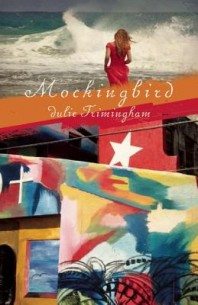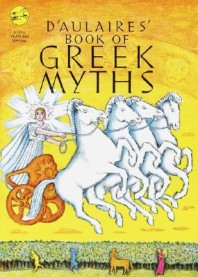“Julie Trimingham Listens to the “Mockingbird” Song: an interview by Lindsey Mcguire”
Mockingbird is Julie Trimingham’s debut novel. Rich with the sights, sounds, and smells of Cuba, the novel is told through the eyes of Mia, an unemployed actress tagging along with her lackluster boyfriend as he desperately works to finish his book. Her days are spent ambling through the neighborhoods with a mix of thrill and tedium. While out one day, Mia happens upon an abandoned baby in a car, which she feels more connected to than anything that she has in ages. That connection that leads her to questionable decisions as her drive to keep the child strengthens. The visuals Trimingham paints are no doubt the result of her filmmaking career, where her eye for detail is evident. We wanted to find out more about Mockingbird, Trimingham’s filmmaking, and what drew her to Cuba.
LM: This is your debut novel. Have you always wanted to write a book? Do you remember the moment you realized you had to write this one?
JT: One of my aunties gave me a red plastic typewriter when I was four because I already knew that I wanted to write, but it can be a long haul from desire to publication. Especially if one is easily distracted. I knew I had to write this particular book when I was walking high up in the Andes with the man who is now my husband. I was in a dither. Maybe it was the thin air, but I realized then and there that I needed to leave Montreal and filmmaking behind me, to turn what had been a screenplay into a book, to commit to writing fiction. I’ve never looked back. Although sometimes I still miss Montreal.
LM: Is Montreal where you were born?
JT: Yes, though not raised there. It was the love of the city that took me back there as an adult. I had lived there for several years and was set on putting down my roots, when my roots called me home to Bellingham. I was there for a winter break and my mother set me up on a blind date with her neighbor. It took.
LM: Sounds like it was worth going to Bellingham. Tell me a little bit about your filmmaking.
JT: I studied to be a painter. I liked to paint things on the edge, domestic things that were tipping or breaking, somehow out of control or electric. But I missed narrative and a sense of movement, so I started making films. Some were stories, some were based on poems or pieces of music. All of them were short. The shorts were great fun, and a great way to learn about and experiment with story, with narrative form.
 LM: Is Mockingbird the result of a screenplay you wrote?
LM: Is Mockingbird the result of a screenplay you wrote?
JT: Yes. Screenplays are not gratifying in and of themselves, to me. They’re blueprints, or skeletons. I kept wanting to put some flesh on those bones, to make the scene descriptions sing. I thought it would be easy, a direct translation from screenplay to novel, that I could use the screenplay as an intact outline and bang away at the computer for a while and end up with a novel. But it was much messier than that. Screenplays are third person, present tense. Mockingbird is first person, past (with intrusions from both present and future). The entire structure changed. The characters changed. I lost track of the rewrites. But along the way, I fell completely in love with prose. It’s a better fit for me.
LM: Mockingbird has the feel of Mrs. Dalloway, in the both the tedium of Mia’s days in Cuba, as well as how she describes the sights and sounds as she experiences them. Did Virginia Woolf’s novel have an impact on your writing?
JT: Great question! I wasn’t thinking of Mrs. Dalloway in the writing of Mockingbird, but in a fundamental way I am indebted to Woolf. She made space for subjectivity, she claimed high ground for female characters and the domestic sphere, for writers who happen to be women. Her work with stream-of-consciousness certainly resonates with my trying to create a kind of intimacy, an almost physical experience of thought and emotion. I’m interested in blurring the lines between reader and character and writer. That’s partly why I wanted “you” in Mockingbird: Mia is talking at times to the reader, at times to a particular beloved, at times to herself. I think despair sometimes manifests as boredom. Mia is trying to figure out how to be in the world: she vacillates between having a sense of purpose and fearing that we’re all just atoms in the void.
 LM: Your story is alive with the culture in Cuba, which is no doubt because you spent some time in Havana. Tell me a little bit about your time there. What made you decide to set your novel there?
LM: Your story is alive with the culture in Cuba, which is no doubt because you spent some time in Havana. Tell me a little bit about your time there. What made you decide to set your novel there?
JT: Travel and writing have always been entwined for me. I knew that the story I wanted to write was about going away and then coming home to family, although I was interested in “home” and “family” being subverted or surprising. I was looking at the Odyssey, which is a great domestic story as well as a great travel story. I wanted to go someplace warm, into a language not my own. I have always been attracted to islands. Cuba stands out because it’s cut off from much of the world. I wanted to play with the line between engaged travel and a more predatory form of tourism. Havana is an easy place to love, despite or because of its complications and contradictions. Shopping isn’t a pastime there because there’s not much money and not much to buy, so people listen to music, go dancing, read, play dominoes, walk in the parks, hang out. I went during hurricane season. I was alone, and spent most of my time walking around taking pictures and notes, wishing I spoke Spanish.
LM: Hence a hurricane serving as a backdrop to the story in Mockingbird. While out one afternoon, Mia finds a baby in a car, which sets her life in a completely new direction. Her actions around that could be viewed sympathetically by some, but amoral by others. Did you strive to make her an ambiguous character?
JT: Mia’s moral ambiguity is central to the book. Writing is, for me, a great way to ask questions I want to think about. How does a good person come to do things that others might view as bad? Incrementally and sideways, is my working theory. Children bring out heightened emotion and action, especially when there’s a crisis. I think of the Elian Gonzalez case, where the mother died in her attempt to bring her child from Cuba to the US, and the Cuban father and the American grandparents were proxies for their respective countries in the ensuing custody battle. Or the instance where missionaries rescued some Haitian orphans after the big earthquake, even though it turns out the orphans had real, live parents who wanted them in Haiti. Where is the line between faith and delusion, between love and blind selfishness? People usually act in a way that feels right to them, they find ways to gloss over morally problematic facts. Judgment has its place, but who’s to judge, and when and how? As a writer, I had to learn to not judge Mia, to simply tell the story from her limited, subjective perspective while trying to make room in the margins of the story for questioning her decisions. Emotional and moral nuance is important. I think our public discourse lacks adequate shades of gray.
LM: I know there’s a reference to the song “Mockingbird” in the book, but how did that come to be the title of your novel?
JT: “Mockingbird” was an intuitive title; it just came to me when I needed to write something on the title page. After, I started digging around in the text to see why it felt so right. I revised with “Mockingbird” in mind, to further tease out the music of the word. A mockingbird steals songs to sing; Mia is an actress. She’s a thief of lines, gestures, and other things. Too, the book is so much about motherhood. The lullaby feels appropriate.
LM: Hearing that explanation makes the story resonate more with me. It made me go back to the book and view Mia differently.
JT: Oh good!
LM: What is a book that changed you?
 JT: Nabakov’s Lolita. D’Aulaires’ book of Greek Myths, which I read obsessively as a young girl. The Odyssey. Jude the Obscure.
JT: Nabakov’s Lolita. D’Aulaires’ book of Greek Myths, which I read obsessively as a young girl. The Odyssey. Jude the Obscure.
LM: My book group read Lolita, and it was a polarizing discussion. I thought the book was great, but it’s odd to enjoy a book like that.
JT: I love what John Updike said, “Nabakov writes prose the only way it should be written, that is, ecstatically.”
LM: What are you currently reading?
JT: I have a four year old; most of my current reading comprises dinosaur books, Arnold Lobel and William Steig. I can’t immerse myself in other characters when I’m working on my own fiction, so I’m not reading anything right now. But I’ll binge on China Mieville, Junot Diaz, Michael Chabon, George Saunders, Lorrie Moore, Zsuzsi Gartner, Jennifer Egan. Things that are fast, funny, sharp.
LM: So you’re working on another book?
JT: Yes. Another novel.
LM: I look forward to reading it when it is released.
Lindsey McGuirk is the Digital Marketing Coordinator for Village Books, where she handles the store’s online and social media marketing.
Original interview at: http://bit.ly/19aaBQi